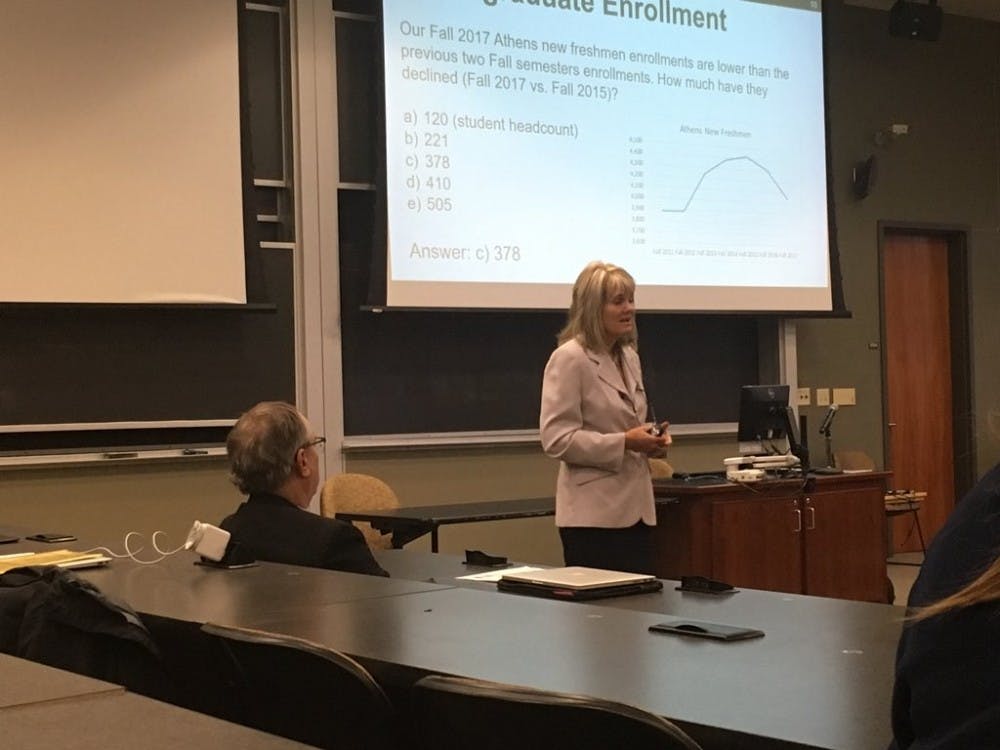Members of the Ohio University administration gave a presentation Tuesday explaining the university’s budget and how it will affect graduate students.
Vice President for Finance and Administration Deborah Shaffer said the state of Ohio sets how much OU can increase its undergraduate tuition, which has remained a 0 percent increase for the past four years.
“When you think about our state subsidy, it’s been going up, and our revenue has no flexibility,” Shaffer said. “That means we have, at best, flat revenue.”
The university’s financial standing has been a widely discussed topic in the past few months, prompting the administration to host several budget forums. Shaffer said in the past 15 years, the level of state support for public universities has declined from 35 percent to 20 percent, according to a previous Post report.
The university’s number one expense is its salaries, and Shaffer said the board has focused on compensation as a priority.
“We have a real challenge because keeping salaries at the rate of our revenue growth ... it doesn’t allow us to recruit or retain the talent that we have at Ohio University,” Shaffer said. “We want to get to offer competitive compensation packages, which are low salaries and benefit structures, in an environment where we don’t have growing revenue.”
OU Graduate Student Senate passed a resolution Feb. 20 asking OU to increase health insurance subsidies for graduate student employees from 4 percent to 89 percent, according to a previous Post report. Shaffer said she does not believe this great of an increase is possible just yet.
“Our goal is to definitely increase our support for the students who are paying for student health insurance,” Shaffer said.
Shaffer said the university dedicated 3 percent of its operating budget in 2012 to support its capital plan for infrastructure improvements. In the past year, $100 million was spent on facilities.
Associate Provost for Academic Budget and Planning John Day said it costs more to teach graduate students than undergraduate because of the higher qualified faculty required. Additionally, many graduate students have their tuition waived because of appointments, causing departments to seek state support.
“If you do the math … graduate education is supported by undergraduate education in terms of financial wellness,” Day said.
Day said because of the reputation built from having graduate programs and higher qualified faculty, more undergraduate students will want to attend the university.
Although some graduate students have a full tuition waiver, they still have to pay the general fee. Day said departments are dependent on the revenue from that fee, but it could be removed with a $1.7 million investment.
Day said graduate students should think about whether the university should invest in increasing stipends or getting rid of the general fee with a “buydown.”
“By buydown, I mean avoiding paying the general fee," Day said. "Then you could get the full benefit of the waiver because there’s no taxation.”






